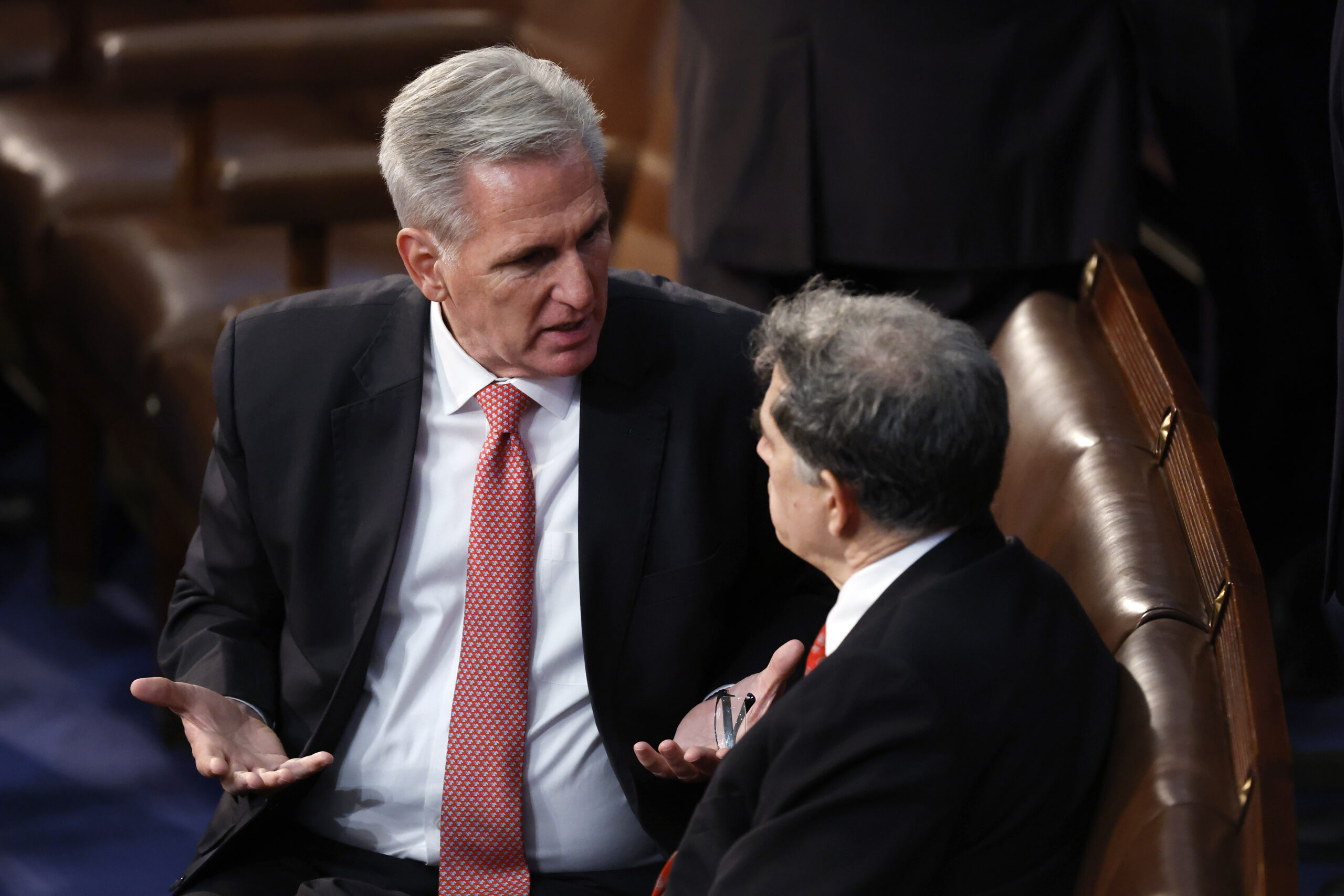Having failed an eleventh vote, Rep. Kevin McCarthy's stalemate with his party's far-right faction dragged on well into Thursday evening with no elected House Speaker in sight. The House voted to adjourn at about 8 p.m. Eastern Time, sending the critical election to another round of voting on Friday.
While some right-wing and insurgent Republican figures such as former President Donald Trump and Rep. Marjorie Taylor Greene have voiced support for the Bakersfield Republican's bid for speaker, a core group of 20 fringe Republican holdouts continued to block him from garnering the majority vote necessary for election.
Thursday’s votes were largely a rerun of past votes: McCarthy won either 200 or 201 votes in each round, well short of the 218 needed for a majority; once again, insurgent candidate Rep. Byron Donalds of Florida blocked his victory. By the ninth vote, McCarthy had lost a vote as some Republicans cast ballots for another Kevin: Rep. Kevin Hern of Oklahoma.
“We need to see what life after Kevin McCarthy looks like,” declared Rep. Lauren Boebert of Colorado before casting a vote for Hern in the ninth vote.
She denounced McCarthy supporters for threatening to bar opponents from committees, and portrayed the opposition as supporting needed reform of “a broken system” overly influenced by lobbyists and with not enough say from rank-and-file members of congress.
Another ringleader of the insurgents, Rep. Matt Gaetz of Florida, actually voted for Trump as speaker. Technically, there is nothing in the Constitution that would block the House from electing a non-member as speaker, although electing Trump or someone outside the House of Representatives would be unlikely to happen.
Meanwhile, routine House business ranging from swearing in new members to constituent casework is on hold. So are other pressing matters such as important legislation addressing the debt ceiling and agriculture policy.
"[My staff is] answering phones and transitioning existing casework from Congresswoman Speier’s office to my office," said newly elected Rep. Kevin Mullin, whose district includes the southeastern edge of San Francisco and San Mateo, both of which are threatened by heavy storms this week. "Staff is also monitoring the storm conditions and keeping me informed on a regular basis as I remain in the Capitol with my colleagues until we elect a new Speaker."
The 212 House Democrats again voted in lockstep for their minority leader, New York Rep. Hakeem Jeffries. Jeffries has continued to garner pluralities in the votes; however, a strict majority is required to be elected speaker.
McCarthy made further concessions to the faction opposing his election late Wednesday, according to The Washington Post.
Among those concessions are changes to the House rules of order allowing for a single member to compel a vote to replace the speaker, and to place more members of the far-right House Freedom Caucus on the Rules Committee, which vets important legislation for the House.
The Congressional Leadership Fund, a fundraising organ supporting McCarthy, has also reached an agreement with the Club for Growth, an anti-tax, limited-government lobby group, to not participate in party primaries for safe congressional seats, per a Financial Times report. The agreement would limit the ability of potential centrist candidates to campaign against far-right incumbents.
Ironically enough, the stalemate also delays work on major Republican priorities, including tightening up border control and blocking enforcement funding for the Internal Revenue Service.
